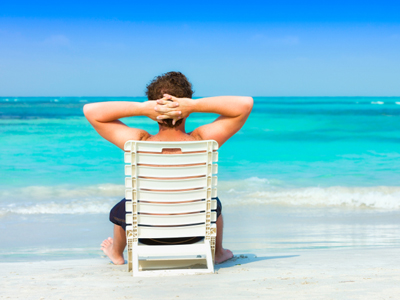
Do it Yourself - Reflexives
Quiz playing is a wonderful way to increase your knowledge of English as a Second Language. Remember that all of our ESL quizzes have titles that are both friendly and technical at the same time… In the case of this quiz you might like to tell your friends about the “Do it Yourself Quiz” but no doubt your teachers will talk about “Reflexives”. If you hear a technical term and you want to find a quiz about the subject then just look through the list of quiz titles until you find what you need.
'Do it yourself' is the English phrase that describes someone repairing or improving their own house, or some other equipment, instead of paying an expert to come in and do the job. Meanwhile there are plenty of jobs and activities that we do by ourselves, and to ourselves, such as washing and shaving. Many other languages insist on having a 'reflexive' structure for this ('I put myself to bed'), but English rarely bothers.
Have a go at this quiz all about reflexives. All your own efforts, of course! ('Do it yourself!')
English just says 'Someone's name is X' (or, less usually, 'X is my name').
If you know the famous musical (and film) 'The Sound of Music' - starring Julie Andrews, whose diction is such a wonderful model if you are learning English - you may remember the song 'Doe, a deer ...' in which the third line goes 'Me, a name I call myself'. Well, that's true, and it does work in English; but have you ever heard any English speaker actually say it?
(We know, 'Je m'appelle Marie', 'Mi chiamono Mimi' etc ... but that isn't the English way!)
In some Mediterranean cities we used to see colonies of wild cats sunning ... .... on the streets, roofs and balconies.
Before we go out, I must just ... ... and ... ... .
While their parents ... ... on the beach, the children went away and ... ... among the dunes.
Holidays are a time when one can ...
'Goodnight then, everybody; we'll meet again next year; and meanwhile, ... '
Someone has just invented a robot cooker that will prepare your dinner all by ...
'I went for a walk all by myself.' ( ... by the polluted stream, or elsewhere!)
In this case we need 'itself', because the machine is neither masculine ('himself') nor feminine ('herself') as it might be in some other languages.
After having a minor accident in the street, he needed to ...
But we hope you will now recognise that in far more cases than not, English does NOT bother to form a 'reflexive' in the same way as many other languages. The reflexive element is unsaid, but automatically understood: if I say 'I wash', without mentioning what I am washing (such as my clothes, or car) ... what else CAN I be washing, except myself?
In some ways, English is simpler ~ and still, clearer ~ than you may think!
Ready for more?
not all...
quizzers. Try to win a coveted spot on our Hall of Fame Page.








Answer 3 is the best version. English people don't need to say that they 'wash themselves', and they tend to do it 'in' (rather than 'under') the shower. These other expressions may well have a logic of their own, but they simply aren't what English people say. We tend to 'have a wash' or 'have a bath' instead of 'showering / bathing ourselves'.